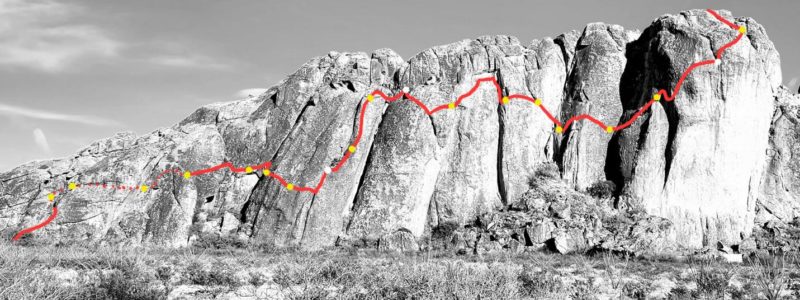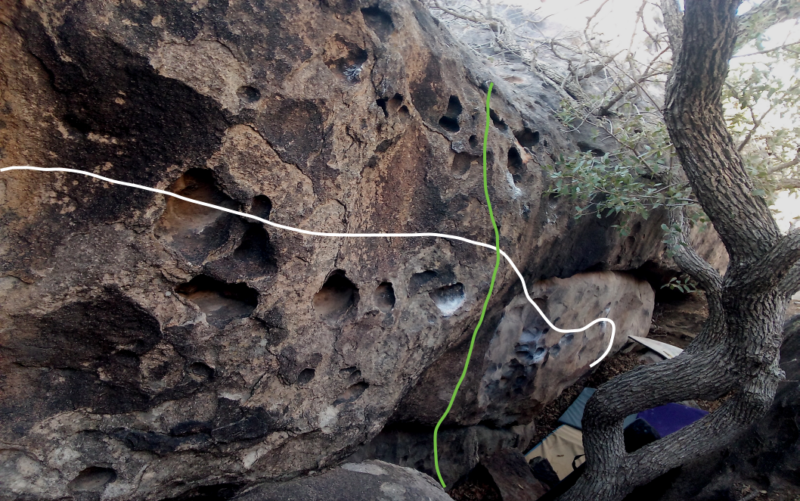The Mountain Project Exodus

The sun is setting for the long time Mountain Project
Why are 1000’s of MoPro contributors removing their content and leaving the platform?
A Shift in Policy: Removing Our Contributions Due to the Changing of Names
In an era where digital spaces are becoming increasingly central to both personal and professional lives, the policies governing these platforms play a crucial role in shaping how individuals and organizations interact. One such recent change in policy has sparked considerable discussion and concern: the shifting of names across various services and platforms. For many contributors, this change has led to a difficult decision — to remove their contributions.
The Changing of Names Policy
In a bid to foster inclusivity or streamline identity management, some platforms have decided to implement a policy that alters or standardizes names across their systems. While these changes might be well-intended — aiming to prevent impersonation, enhance security, or simplify user experiences — they have not been universally well-received. Many users, particularly those who have made significant contributions over time, feel that these changes undermine their efforts or fail to respect their identities and personal choices.
These contributors have poured time, knowledge, creativity, and energy into their work, shaping digital ecosystems, creating content, and building legacies within these platforms. Now, the forced alteration of names risks not just the visibility of their contributions but also their personal connection to the work they’ve done. This has left some feeling that their hard work is being erased or diminished in the name of a policy change they did not agree to.
Why People Are Choosing to Remove Their Contributions
- Identity and Recognition: For many contributors, names are not just labels but reflections of their identity. Whether it’s a pseudonym, a nickname, or a carefully chosen username, names are often tied to years of effort and achievement. When a platform enforces changes to these identifiers, it can feel as though the platform is erasing a part of who they are. The process of removing their contributions allows them to reclaim control over their identity and ensure that their legacy is tied to the name they chose.
- Preservation of Legacy: In many cases, users have built a reputation or career around their online persona. This can include a body of work, a following, or a unique style associated with their name. A forced change risks diluting or confusing that reputation. By removing their contributions, they hope to preserve the integrity and clarity of their past work, ensuring it remains connected to the name under which it was created.
- The Principle of Autonomy: The changing of names, particularly when done without user consent, raises significant concerns about autonomy. Contributors may feel that their personal agency is being undermined, especially if they were not consulted or given an opportunity to opt out. For many, removing their contributions is a way to assert their right to make decisions about their own work and digital identity.
- A Response to Policy Overreach: Some view these changes as a sign of corporate overreach, where a platform is dictating personal identifiers for its own convenience, without sufficient regard for the diverse needs of its users. For these individuals, removing their contributions is a form of protest against what they perceive as an imposition that disregards the principles of freedom and individual choice.
The Impact of Removing Contributions
While removing contributions might seem like a personal decision, it can have ripple effects. Contributions — whether in the form of code, art, writing, or community support — are often central to the success and vibrancy of a platform. When users, especially long-term contributors, decide to pull their work, it can result in significant gaps or a diminished sense of community. Moreover, it can erode trust in the platform, causing others to reconsider their participation.
For the platform itself, these removals could signal dissatisfaction, which might prompt a reevaluation of the policy. Companies that value user engagement will need to balance their policy changes with the rights and desires of their contributors. If they fail to do so, they risk alienating valuable members of their community, which could ultimately lead to a decrease in user-generated content and innovation.
What Comes Next?
The shifting of names across platforms is a reminder of the importance of thoughtful policy-making. As platforms continue to evolve, it’s crucial that they not only consider the technical and security benefits of such changes but also the emotional and personal impact on their users. A more transparent, collaborative, and user-centric approach to these decisions can help avoid a mass exodus of contributors.
For those who have removed their contributions, the next steps involve finding new spaces where their work can be valued and where they can retain control over their identity. Whether it’s migrating to other platforms, building their own spaces, or advocating for policy revisions, contributors will continue to seek environments where their work is respected, and their voices are heard.
In the end, this debate underscores the tension between platform governance and individual rights. As the digital landscape evolves, it will be crucial for platforms to find a way to honor the contributions of their users, offering them the flexibility to thrive without losing their sense of identity in the process.
Ultimately, the message is clear: the digital world must be a space where contributors can maintain their autonomy and where their work can endure without being subject to arbitrary changes that undermine their legacy. For many, this means taking the difficult step of removing their contributions until that balance is restored.





This has been the norm for a few years now. Mountain Project is a has-been.